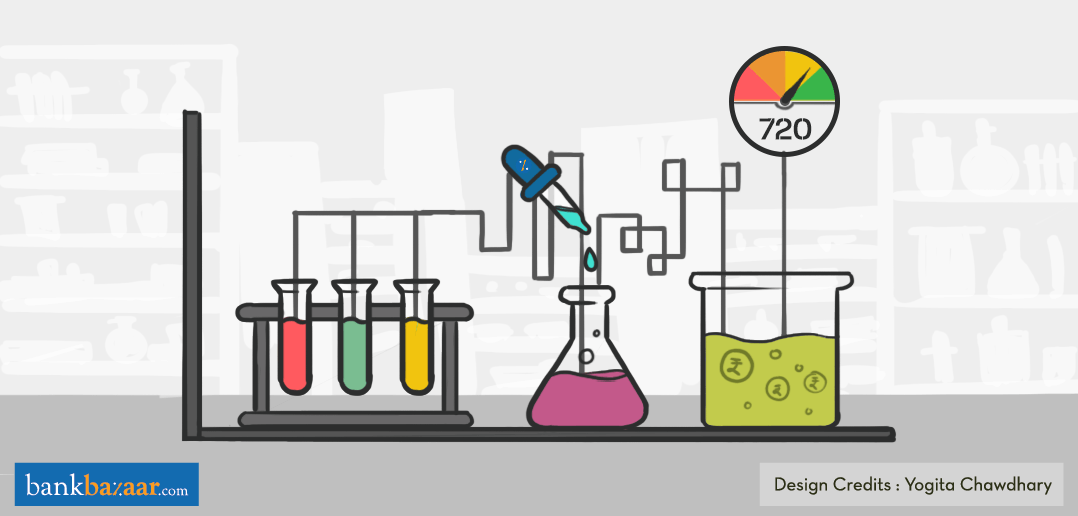There’s a lot of ambiguity surrounding the calculation of your Credit Score. Here’s an interesting article on how your Credit Score is calculated. Keep reading.

Typically, your Credit Score is based on numerous factors such as the credit bureau, the data on which the score is based and the method used by the credit bureau in calculating the score. In India, there are three major credit bureaus – Experian, Equifax, and TransUnion (or CIBIL).
Additional Reading: 4 Ways Your Credit Score Helps You Plan Your Finances Better
However, you should note that the scores provided by these credit bureaus may vary depending upon the information given by the various lenders and banks to these three bureaus. In general, there are a few basic factors that determine the calculation of your Credit Score.
- The number of active accounts you have (like Loan Accounts and other EMI accounts)
- The types of accounts you hold
- The ratio between used credit versus available credit
- Your credit history
- Your payment history
Again, the important thing to keep in mind is that depending on the scoring model used by the credit bureau, each of these factors will have different weightage/impact on your Credit Score. Let’s get into the details and explain to you how this is done.
Additional Reading: Credit Score Facts You Didn’t Know
Credit Options
Your Credit Score calculation is based on your credit dues. This includes the credit summary from your Credit Cards and loan accounts. So, if you’ve been paying EMIs on any loan such as a Personal Loan, Car Loan or Home Loan, these details will impact and play a big role in the calculation of your Credit Score. If you have got a Credit Card, then this will also be included in the calculation.
Additional Reading: Can You Get A Personal Loan With A Low Credit Score?
Used Credit Vs Available Credit
This is nothing but your credit limit and how much of it you’ve used. It is your credit utilization ratio and experts believe that you should never use more than 30% of your credit limit. Lenders and creditors often consider this information to be critical as it is a testament to your spending habit.
This means it is not a good thing to max out your Credit Card or have outstanding payments on your Credit Card bill.
Payment History
Your payment history says a lot about you. In fact, this information is critical to all creditors/lenders as they may be worried about you repaying the debt undertaken. So, your payment history on your EMIs on the various loans or Credit Cards is absolutely important.
Your payment history will also show the prospective lender if you have ever missed a payment, a deadline or have ever been bankrupt. While calculating your Credit Score, bureaus will take into consideration how late your payments were, how often they were late and how much was owed.
Credit History
The length of your credit history is nothing but an indicator that suggests for how long you have been maintaining a payment history. Confused? Don’t be. Your credit history is basically information on all the Credit Cards you ever held and every single loan account that you opened from many moons ago.
Additional Reading: How to Build a Credit History If You Don’t Have Any Existing Loans
Want to improve your credit history? Start prioritizing your repayments and be diligent about your spending. If you’re looking to check your Credit Score, then you can check it by clicking the button below.